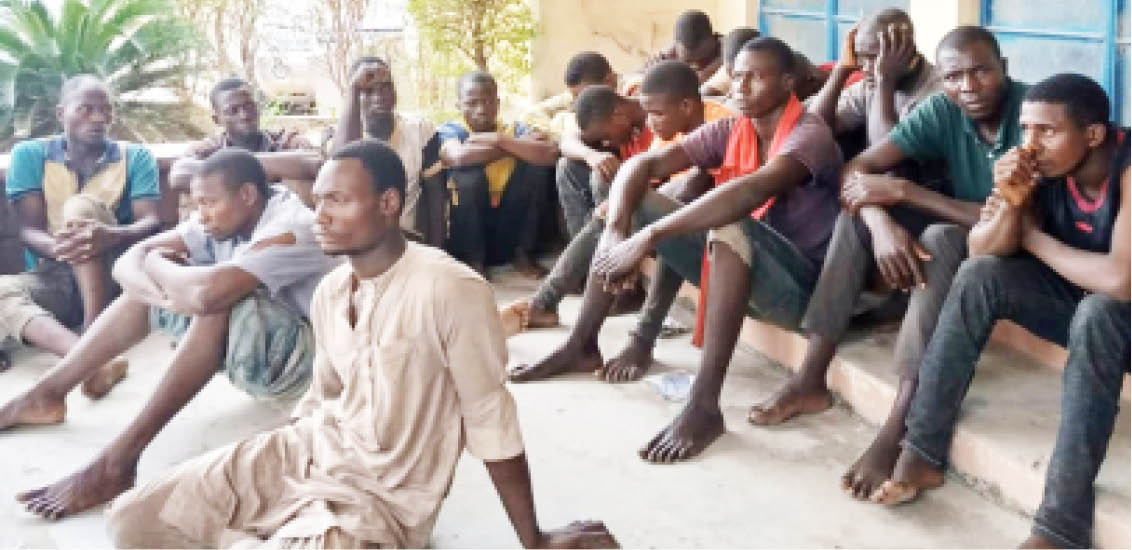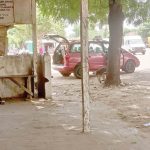Nigerians point all accusing fingers squarely at the leadership for everything wrong with the country. Ordinary Nigerians blame their leaders of corruption, or of a lack of vision and patriotism. In fact, as the journalist and author, Olusegun Adeniyi, wrote in his 2017 book, Against the Run of Play: How an Incumbent President was Defeated in Nigeria, Nigerians blame their leaders for all the corruption in the country, demand that their leaders fight corruption, and praise the leaders who do. Also in Nigeria, pundits who rile against leaders or call them unprintable names become instant heroes of the “people”.
Yet, in many ways, Nigerians are also part of the problem. In his 2007 book, A Culture of Corruption: Everyday Deception and Popular Discontent in Nigeria, the American anthropologist, Danile Jordan Smith, makes the important argument that elite corruption in Nigeria is directly connected to and perpetuated by the equally fraudulent and corrupt behaviours of ordinary Nigerians in many different forms. If ordinary citizens are generally prone to corrupt or fraudulent behaviour, they cannot hold their leaders accountable.
It is ordinary Nigerians, for example, who engage in widespread examination malpractices that make nonsense of any educational attainment. It is ordinary Nigerians who engage in job racketeering and medical quackery. Ordinary Nigerians doing artisanal work like mechanics, tailors, electricians, plumbers, masons, bricklayers, etc., daily steal from their own customers without blinking about it. It is ordinary Nigerians who overload their vehicles and damage the roads before their time is due. And it is ordinary Nigerians who get roasted like chickens while vandalising pipelines or electrical installations from the national grid. And these are only a few examples.
You may say that these are ‘petty crimes’ by only a few bad eggs, and you would probably be right. But the massive scale in which these events, and many others like them, happen daily in Nigeria goes well beyond the boundaries of ‘petty’, however it is defined or understood. Moreover, many Nigerians who engage in these actions generally do not regard themselves as criminals, but as ordinary citizens “trying to survive” or as members of that lovely family called the ‘Nigerian masses’.
- Edu: Hijrah asks Tinubu to extend searchlight to other ministers
- What Supreme Court ruling meant for Zamfara security – CSOs
Our point then is that the direction of travel for corruption and oppression in Nigeria is actually along three lines; not just from government against citizens, but also from citizens against citizens, and from citizens against government. The same ways in which public officials steal the country blind, citizens also do their own bit of stealing from the government or from other citizens. And as a society, we must shine the spotlight on all instances of wrongdoing, regardless of who does it, if we truly aim for things to get better.
Late last month, just when Nigerians and the rest of the world were shifting gears into the new year, the Nigerian Railway Corporation (NRC) told newsmen that it lost 150,000 rail clips to vandalism in a year. NRC’s managing director, Felix Okhiria, said over 50,000 clips each had been vandalised along Lagos-Ibadan, Warri-Itakpe, and Abuja-Kaduna standard gauge tracks between 2022 and 2023. “The only issue we have now is vandalism of the tracks, which is a big problem. When we replace the tracks, they will come back and vandalise them again,” Okhiria added.
Vandalisation of public assets is not confined to the railways in Nigeria. Nigerians steal all sorts of public assets, from school books and chairs, to grains in silos, to streetlight posts and mechanical or electrical equipment in many organisations and more.
The monetary costs of such acts are staggering. As a recent article in The Guardian put it, vandalisation of available public assets “currently costs over N132 billion in repairs yearly. Nationwide are rampant thefts of electricity transformers and cables, removal of rail track slippers, tampering with oil pipelines, vandalism of manhole covers, pedestrian bridge railings and bridge barriers.” But the developmental costs are far worse.
No country can grow or develop where ordinary citizens, called “hoodlums”, routinely strip away public assets for sale or self-use. Daily Trust, therefore, calls for all concerted efforts to put a stop to the rampant vandalisation of public assets in Nigeria. Public bodies with significant installed assets should work with local communities to ensure the security of their assets. Security outfits, like the police and civil defence, which are often accused of conniving with vandals in stripping public assets, should strengthen internal mechanisms for protecting our public facilities and punishing offenders.
Above all, the National Orientation Agency should live up to its responsibilities, for once, by engaging in a massive and effective campaign against theft and vandalisation of public assets. Public assets are for the benefit of us all.

 Join Daily Trust WhatsApp Community For Quick Access To News and Happenings Around You.
Join Daily Trust WhatsApp Community For Quick Access To News and Happenings Around You.


